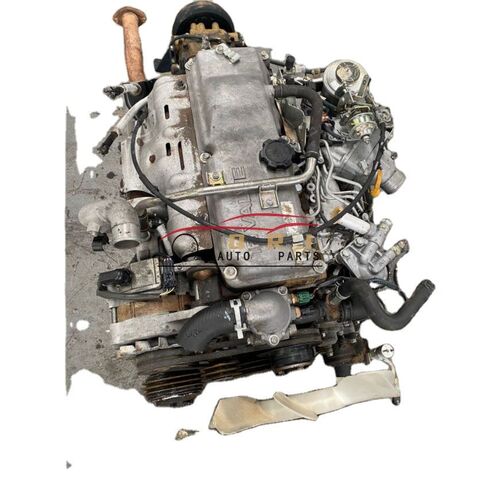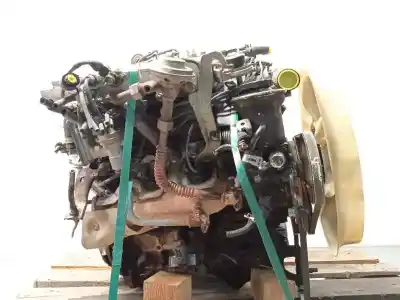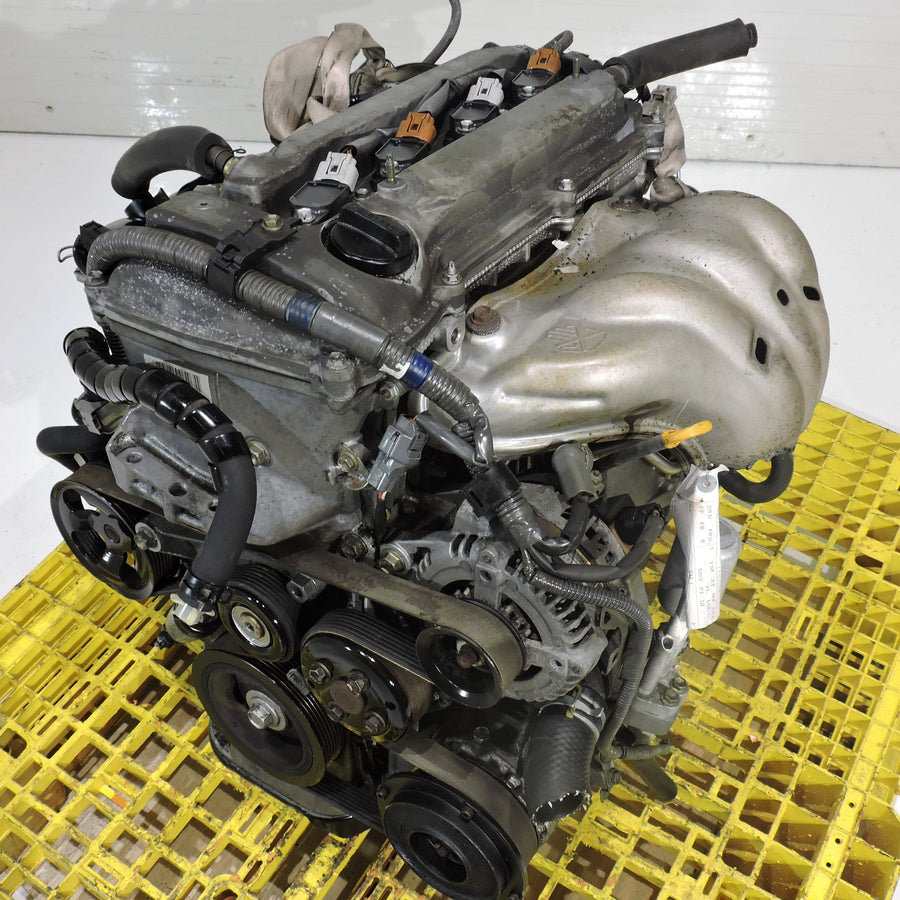Explore Top Quality and Worth: Your Guide to Purchasing a Previously Owned Engine
When considering the acquisition of a used engine, recognizing the elaborate balance between top quality and worth is critical. A comprehensive analysis of engine background, problem, and reliability is necessary to make certain an audio financial investment. By carrying out appropriate evaluations and research, possible customers can navigate the intricacies of the marketplace more effectively. Nonetheless, the subtleties of guarantee options and pricing techniques can substantially influence the overall decision-making procedure. As you ponder these elements, one question stays: what certain components will ultimately guide your choice in this crucial financial investment?
Comprehending Engine Types
When taking into consideration the acquisition of a used engine, comprehension of the various engine kinds is necessary for making a notified choice. Engines can typically be classified into 2 major types: interior combustion engines and electric engines. Internal burning engines, that include gasoline and diesel variants, count on the combustion of gas to produce power. Gas engines are generally lighter and rev higher, making them suitable for efficiency lorries, while diesel engines are renowned for their torque and fuel effectiveness, commonly favored in heavy-duty applications.
On the other hand, electric engines use power stored in batteries to power the vehicle, offering a cleaner choice with less moving parts and reduced maintenance requirements. Within these classifications, there are even more distinctions, such as four-stroke versus two-stroke internal combustion engines, and various electric motor setups.
Comprehending these differences is critical, as they affect performance, compatibility with existing automobile systems, and long-lasting functional expenses. By familiarizing oneself with the different kinds of engines readily available, potential buyers can better evaluate their needs and make options that line up with their car's demands and their individual choices.

Reviewing Engine Condition
A detailed evaluation of engine problem is paramount for anyone considering the acquisition of a used engine. Start with an aesthetic assessment; look for indications of oil leaks, corrosion, or any physical damage to the engine block. A tidy engine is usually a measure of excellent upkeep methods, while extreme gunk may recommend forget.
Following, examine the engine's elements, including the timing belt, gaskets, and seals. Search for deterioration, as these parts can be pricey to change. Furthermore, analyze the engine mounts, as harmed installs might bring about resonances and more mechanical issues.
A compression test is essential to gauge interior engine health and wellness. Uniform compression throughout all cyndrical tubes suggests a well-kept engine, whereas significant inconsistencies may indicate inner damage or wear.
Listening to the engine throughout a start-up can offer useful insights; any kind of unusual sounds, such as knocking or rattling, might suggest much deeper concerns. If possible, request an examination run to evaluate performance under load. By diligently examining these variables, prospective purchasers can make enlightened decisions and secure a quality pre-owned engine.
Monitoring Engine History
Understanding the engine's background is important for making an educated acquisition. Knowledge of previous usage, maintenance documents, and any previous damages can substantially affect the engine's reliability and longevity. Start by requesting the automobile recognition number (VIN) or engine serial number, which allows you to trace the engine's background.
Utilize readily available sources, such as Carfax or AutoCheck, to obtain a car history report. This report will certainly provide vital understandings, consisting of mishap background, solution records, and previous ownership details. Toyota RunX RSI. Pay specific interest to any signs of serious damage or duplicated repair work, which may suggest underlying problems
Inquire about upkeep routines performed on the engine. Regular oil modifications, timing belt replacements, and other preventive measures mirror responsible ownership. In addition, ask if the engine has actually undergone any modifications, as non-standard alterations can affect performance and compatibility with your vehicle.
Finally, when possible, look for confirmation from a trusted auto mechanic that can examine the engine's condition based upon its background (Toyota RunX RSI). This thorough examination will certainly help you make sure and avoid possible mistakes that your financial Read Full Article investment is rewarding and sound
Warranty and Return Plans
Getting a pre-owned engine commonly includes differing guarantee and return plans that can dramatically affect your decision. When taking into consideration an utilized engine, it is necessary to completely review the warranty options given by the seller. Some suppliers might provide minimal guarantees that cover details components for a specified period, while others might offer even more extensive protection. Comprehending the problems and terms connected to these guarantees is critical, as they can influence the long-term value and dependability of your acquisition.

Additionally, trusted vendors frequently offer paperwork that outlines the warranty and return process, making sure transparency. Always request this details before finalizing your purchase. A well-defined service warranty and return policy can provide peace of mind and safeguard your investment, making it an essential part of the decision-making process when purchasing a used engine.
Locating the very best Deals
When looking for the most effective bargains on a used engine, it is crucial to carry out extensive research and compare prices from different sellers. Beginning by checking out on the internet markets, automobile forums, and regional salvage lawns to gather a comprehensive understanding of the marketplace. Using rate comparison tools can simplify this process, highlighting competitive prices across various platforms.

Consider timing your acquisition strategically. Seasonal variations popular can influence costs, with certain times of the year supplying far better offers. In addition, be open to discussing rates; several sellers might want to decrease their asking price, particularly if the engine has been provided for an extensive you could check here duration.
Conclusion
In recap, acquiring a used engine requires a complete assessment of high quality and worth. Reviewing engine condition with evaluations and tests, confirming its background, and recognizing warranty and return policies are critical steps. Furthermore, contrasting rates across various vendors guarantees the very best economic decision. By sticking to these standards, customers can improve their chances of acquiring a trustworthy Read More Here engine that fulfills their requirements while avoiding potential mistakes related to second-hand acquisitions.
When taking into consideration the acquisition of a pre-owned engine, understanding of the numerous engine kinds is vital for making an informed choice. Engines can usually be classified into two main types: internal combustion engines and electric engines. Gasoline engines are generally lighter and rev higher, making them appropriate for efficiency automobiles, while diesel engines are renowned for their torque and fuel efficiency, often favored in heavy-duty applications.
A thorough analysis of engine problem is critical for anyone taking into consideration the acquisition of a used engine. Start by asking for the automobile identification number (VIN) or engine serial number, which allows you to trace the engine's history.